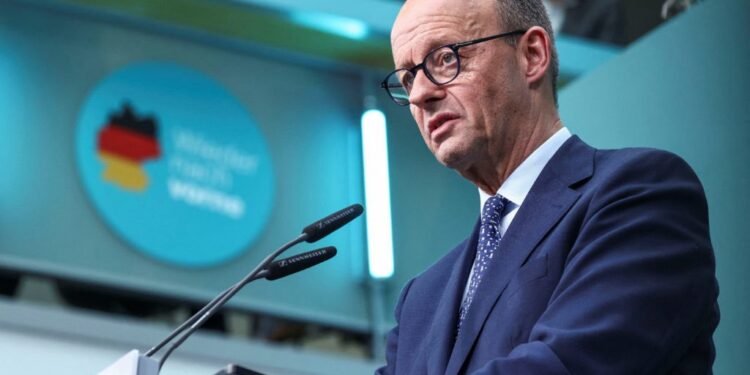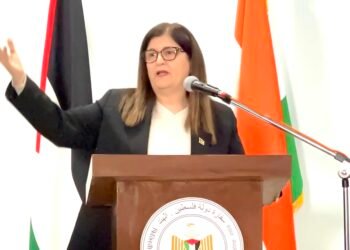BERLIN: On Monday, Chancellor Friedrich Merz said that Germany would send emergency airlifts to Gaza to bring humanitarian aid. This comes as Berlin considers putting more diplomatic pressure on Israel because of the worsening humanitarian catastrophe in the enclave.
Merz said at a press conference after a two-hour meeting of the German security cabinet that the situation in Gaza is “catastrophic.” He also said that talks are going on about possible policy changes, including ones that had been ruled out before, like suspending the EU-Israel Association Agreement.
“We are keeping such steps on the table,” Merz said. He stated that the cabinet had looked at a number of options, but no urgent decision had been made. He also said that he will try to talk directly with Israeli Prime Minister Benjamin Netanyahu later in the day to talk about how things are getting worse.
Local health officials say that the dead toll in Gaza’s war is close to 60,000 as it enters its second year. Starvation and malnutrition are increasingly killing more and more civilians, and shocking pictures of thin youngsters are making people throughout the world angry. These changes have made people look more closely at how Israel is acting, even its closest allies.
Germany, which has long been one of Israel’s biggest supporters and a key supplier of weapons, seems to be changing its mind. Merz welcomed Israel’s declaration of a daily 10-hour ceasefire in military strikes in some parts of Gaza, calling it “an important first step,” but added that “much more is needed.”
The German government is working with Jordan to coordinate the humanitarian airlift and is in regular contact with France and the UK, both of which are also likely to help in the mission. Merz stated, “Defense Minister Boris Pistorius will work closely with his French and British counterparts to get food and medical supplies into Gaza.” “We know this won’t fix the problem, but we want to help in any way we can.”
Johann Wadephul, the foreign minister, is set to visit the area on Thursday, possibly with his British and French counterparts. Germany will review its approach this weekend based on what happens on the ground and continued diplomatic efforts.
Merz also said that Berlin will start getting ready for a Gaza Reconstruction Conference with help from countries in the region, like the UK and France. He cautioned, “No more expulsions from the Gaza Strip.”
The change in tone is a sensitive time for Germany’s foreign policy after the war. It has been defined by Staatsraison, a philosophy of historical responsibility for Israel that comes from Germany’s Holocaust history. Berlin has preferred discreet diplomatic channels to public denunciation for decades.
But Merz is now under more and more pressure from both home and abroad to be more proactive. He was recently criticized for not signing a joint statement from dozens of Western countries that condemned the “inhumane killing” of Palestinians.
The comments made on Monday suggest that Germany’s long-standing policy of secret diplomacy with Israel may be entering a new phase. This phase will have to combine its historical duties with the growing calls for responsibility.
-Sarah Marsh



















